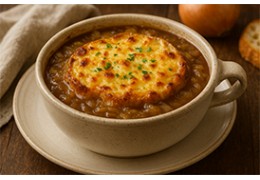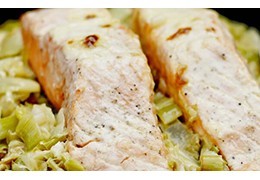What is organic wine?
Bio and organic wine: a little history
It was only after the Second World War, in the 1960s, when intensive agriculture was enjoying great success, that organic farming appeared in France.
In fact, in 1962 the AFAB (Association Française pour l'Agriculture Biologique - French Association for Organic Agriculture) was created, but it wasn't until the very early 1980s that the first decrees and laws were passed in France for the creation of specifications (agricultural orientation law of July 4, 1980 and decree of March 10, 1981: defining the conditions for approval of specifications and substances that may be used in the production, preservation and processing of so-called organic agricultural products).
The European Community officially recognized organic farming in 1991 with EEC regulation no. 2092, followed in August 1999 by rules on production, labeling and inspection for livestock (Regulation 1804/1999).
The number of winegrowers committed to organic farming continues to grow: it rose by over 16% in 2007, representing 1907 winegrowers or still 2.6% of French vineyards.
Is there such a thing as organic wine?
Organic wine has officially existed since 2012, with the recognition of organic wine by Europe. Previously, there was no such thing as an "organic wine" as such, but wines made from "organically grown" grapes. Regrettably, the winemaking specifications are not very restrictive for the organic winemaker, and pave the way for the rise of industrial organic wine, a wine made from organic grapes but whose taste can be standardized thanks to permissive winemaking practices!
The aim of the "organic wine" label is to ensure that the wine is made from organic grapes, and that the wine is produced in the most environmentally-friendly way possible.
The aim of organic farming is to respect the land, the products and the consumer in order to eat healthily while respecting the terroir.
Organic wine-making
Organic agriculture is subject to specifications that prohibit, among other things, the use of synthetic fertilizers or phytosanitary products, nor chemicals (pesticides, insecticides, fungicides, fertilizers, etc.). The winegrower who produces an "organic wine" tries to strengthen the vine's defenses as much as possible to limit the need for treatments. However, against the most common diseases (mildew, powdery mildew), treatments with sulfur and Bordeaux mixture (copper-based) are most often used. This kind of vineyard management takes time: that's why making an organic wine requires 20% to 30% more labor than conventional farming.
.A minimum of 3 years is required to become certified organic. During these 3 years, the vineyard is in organic conversion: it must comply with the regulations on organic products, is monitored by the certification body which ensures compliance with these regulations, but is not considered "organic wine".
As far as organic wine is concerned, there is a minimum of 30% extra labor required compared to conventional farming.
When it comes to winemaking, winemakers with certified organic vineyards have few more constraints than conventional winemakers, as the European Union has allowed the use of exogenous yeasts and virtually all conventional winemaking practices. Sulfur is authorized at slightly lower doses than in conventional wine (30 to 50mg less). It's wrong to think that organic wine is the same as sulfur-free wine. However, a large number of winegrowers who manage their vineyards organically are very careful to preserve as much naturalness as possible (i.e. to use as few chemicals as possible) in their cellars, in order to highlight all the work put into the vines. In fact, some have signed up to the FNIVAB charter, which sets out the rules for transforming organic grapes into wine during vinification, ageing and packaging.
.Organic wine: certifications and labels
Certification bodies are in charge of controlling vineyards on behalf of public authorities and validating compliance with French and European regulations concerning organic.
ECOCERT, created in 1991, is the most widespread organization: it carries out controls on 70% of "organic" companies (production and processing) in France and 30% worldwide. The majority of organic wines are certified by Ecocert.
The Label belongs to the Ministry of Agriculture: it guarantees that the food is made up of at least 95% organically produced ingredients, contains no chemical colorants, artificial flavors, synthetic additives or chemical preservatives, and has not been irradiated. You'll find this label on some organic wines, but it's not systematic: some simply state "wine made from organically grown grapes, certified by Ecocert".
.Beyond these certifications and labels, private organizations have drawn up their own specifications and labels. Examples include Demeter or biodyvin, which certify biodynamic viticulture and low-sulfur winemaking, or TERRA VITIS, which certifies sustainable agriculture in accordance with precise specifications.
At the same time, private organizations have developed their own specifications and labels.






